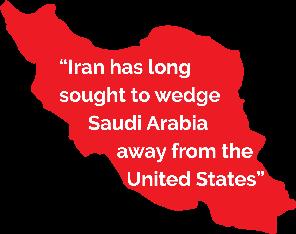NATIONAL
Moral Laundering
Big Pharma Family turns Bankruptcy to Profit BY SOPHIA DELUCA
A
s the manufacturer of OxyContin, a narcotic commonly prescribed for pain relief that has since become the gateway to opioid addiction, Purdue Pharma is widely credited as the drug company that almost single-handedly kickstarted the opioid epidemic that currently claims an average of 130 lives everyday. This staggering loss of life has precipitated almost every state and 2000 U.S. cities and counties to sue Purdue Pharma. Amidst midst these lawsuits, the Sacklers, the family who founded and owned Purdue Pharma, continue to profit from these opioids even as Purdue Pharma declares Chapter 11 bankruptcy, yet again walking away with minimal damage to their personal fortune. On September 14, 2019, the company declared bankruptcy, claiming an inability to finance legal fees and settlements for over 2,600 federal and state lawsuits. Purdue claimed Chapter 11 bankruptcy, which allows for businesses to reorganize and restructure, while paying off the claims against them. Under this bankruptcy declaration, Purdue Pharma become a public benefit trust, a for-profit corporation that would commit to using all company profits to paying settlements, aiding communities plagued by the opioid epidemic, and funding research and development of medicines to treat addiction and overdoses. The Sackler family would also relinquish private ownership of Purdue under this agreement. Purdue’s bankruptcy declaration appears to be premeditated and intentional, intended to maximize profit and minimize harm to the company. After hiring Steve Miller, who is colloquially known in the business world as the “turn-around kid,” as a restructuring specialist several years ago, Purdue began working with a law firm specializing in bankruptcy. This specific model of declaring bankruptcy to save a company is not unprecedented. Purdue’s actions are modeled off of the Johns Manville Personal Injury Trust. Creating a similar trust allowed the bankrupt asbestos manufacturing company Johns Manville to pay settlements for those suffering from mesothelioma, an asbestos-caused cancer, without paying the legal fees for the thousands of lawsuits against them. Since its creation, the Johns Manville Personal Injury Trust has
settled 23,000 claims and paid out over $1.1 billion. Although it follows the same basic principle, Purdue Pharma’s settlement differs from this case in several key ways. The Purdue Pharma bankruptcy claim asks for the Sackler family to be protected from lawsuits for the next nine months, with the expectation that they will pay $3 billion out of their personal fortune over the next seven years. However, a New York judge ordered a pause in lawsuits, but only until November 6, 2019. In addition to this financial contribution, the Sacklers will also relinquish any ownership over the company, which brought in $790 billion from the sale of OxyContin over the past year. Upon closer look, these sacrifices are much less noble than they seem. Purdue currently has a patent over the sale of tamper-resistant OxyContin, a virtual monopoly on the production of opiates. This patent, however, will soon expire, allowing other companies to produce the drug, and diminishing the drug’s value on the open market. The imminent expiration of this patent and the subsequent decline in value of Purdue’s signature drug makes this a convenient time for the Sacklers to abandon Purdue. This fortuitous financial loss aside, the family will still give up $3 billion dollars of their personal fortune, less than a fourth of one of America’s wealthiest families’ $13 billion overall fortune. This number appears even more inconsequential in light of the accusation that the Sacklers moved around $13 billion of Purdue Pharma’s profits to personal accounts over the years through wire transfers and the use of Swiss bank accounts and property investments. The Washington Post reported that the $13 billion dollar estimate was found in the transcript of a deposition from one of Purdue’s business advisors. These wire transfers, and the knowledge of the Sackler’s astounding fortune, are the reasons that several states are refusing the proposed “bankruptcy settlement.” In the context of the size of their wealth and the consequences of their practices, the Sackler family’s $3 billion offer seems less like a meaningful contribution to fix an issue they had a large part in causing, and more like a desperate attempt at “moral laundering.” Forbes defines moral laundering as the act of wealthy individuals and companies making large donations and engaging in philanthropic efforts in order to preserve their moral standing in the public eye. Notwithstanding their promised $3 billion payout, the Sacklers have a history of moral laundering. According to Vox, the Sacklers have actually donated enough money to art museums, including the
Louvre, Smithsonian, and the Metropolitan Museum among others, that entire galleries have been named in honor of their family. Although these institutions are beginning to refuse these donations, these donations to prominent art museums are prime examples of the campaign of moral laundering the Sacklers have pursued to protect their public reputation. Despite the promise of reorganization, funds for research, and aid for communities suffering from addiction, Purdue Pharma’s declaration of bankruptcy seems to be yet another way for the Sackler family to engage in moral laundering. Under the current terms of the deal, the family stands to escape the threat of lawsuits until November 6, and relinquishing control of a company that stands to become far less profitable in the near future regardless, all because of a minimal payout relative to their wealth.
GEORGIA POLITICAL REVIEW | 27











